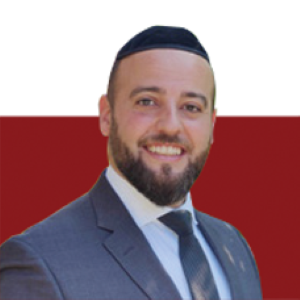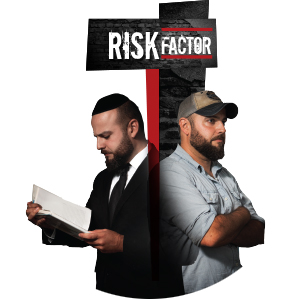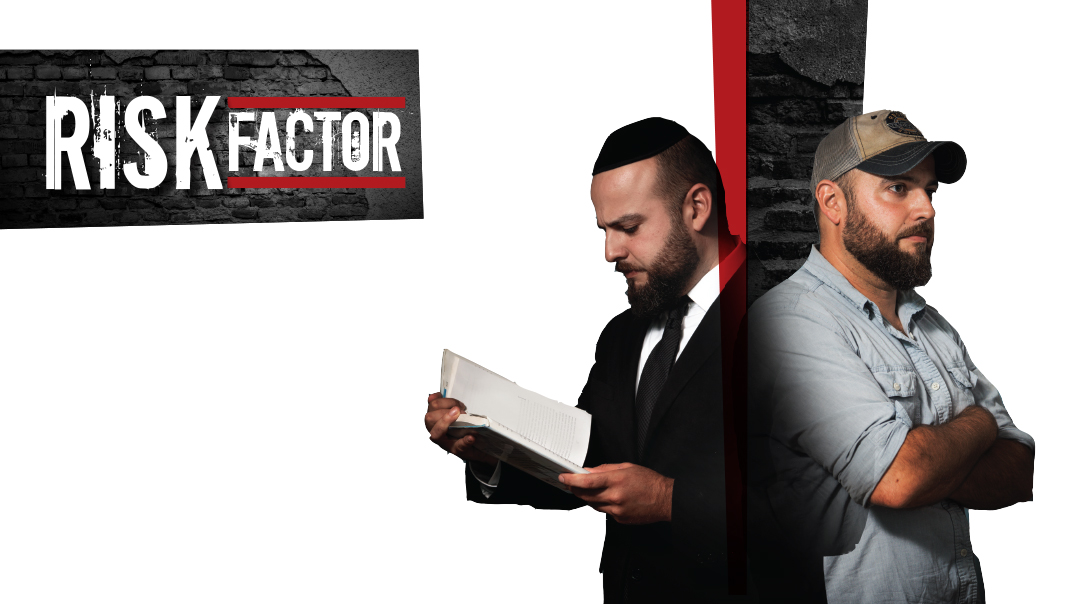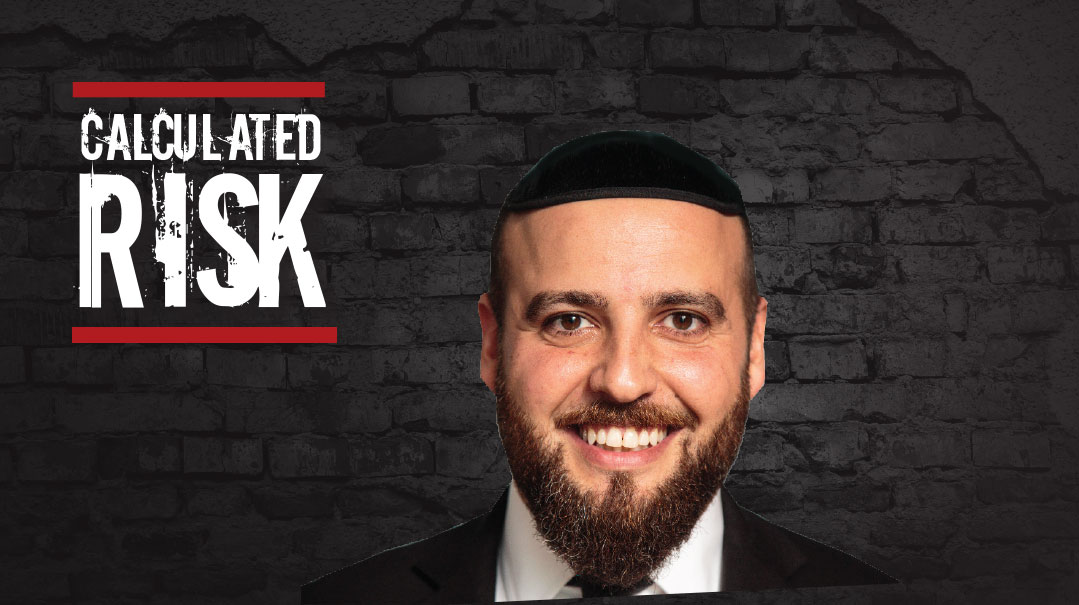He Fooled Them All

“You don’t know my father! If he finds out, he’ll kill himself and then me!”

"Reb Yossele!” The familiar voice of Rabbi Orlis boomed loudly in my ear. “I got one I need you on!”
The only thing bigger than Rabbi Orlis’s voice is his heart. He never brings me easy situations, but I love working with him.
“I got a kid here, his name is Yehuda. He’s got everyone fooled,” he explained. “Mamash no one knows what he’s up to, except the friends he parties with. His parents think he just sleeps late, and they don’t bother him about it. But he sneaks out every night, then puts on his costume in the morning, goes to yeshivah, and does what he’s supposed to do, and everyone thinks he’s okay.”
Playing the part is the new “off the derech.” A kid could go years and never be called out and helped, because he dresses and acts the part. All while he’s dying slowly inside.
I agreed to meet with Yehuda. But I knew these cases always get ugly.
“One thing, though, Reb Yossele. The parents — they can’t know.”
Scratch that. Very, very ugly.
*******
I started meeting with Yehuda weekly. It took a few sessions until he was willing to trust me enough to open up, and then a few more weeks until he valued our relationship enough for me to question him about his double life.
“It’s just easier this way,” he said.
This wasn’t about having fun. It was about being accepted. By anyone, by everyone. Not a want — a need.
“What would happen if you were honest with others about your struggles?”
He looked horrified. “My life would be over!”
“What life? The life that leaves you alone to fend for yourself? The life that requires you to lie to everyone? The life that will make sure that you never have a real relationship with anyone as long as you live?”
Yehuda isn’t the first person I’ve met living a sort of double life. In my experience it’s rooted in perfectionism — the belief that things that aren’t perfect are automatically bad. This usually leads to a lot of anxiety, negative self-image, and lying.
“It’s not an option,” Yehuda said finally.
“Okay,” I said. “Even if I could force you, I wouldn’t. It has to be your decision.”
“You don’t know my father! If he finds out, he’ll kill himself and then me!”
“I’m not sure how that would work,” I said. “But in any case, I would do it with you. We’ll talk him through it. You’re right, he won’t understand right away. But I want you to imagine for a minute what your life would be like if your father really accepted you for who you are. Not only for the things you do, in school or whatever, but actually accepted who you really are.” I could see Yehuda was thinking and I tried to take advantage of the moment. “How much better would your life be if you didn’t have to hide?” I phrased that carefully to make the point — being honest equaled a better life.
*******
When Rabbi Orlis called me a day later, I updated him on what Yehuda and I were working toward. When I finished, there was a brief silence on the line. Rabbi Orlis exhaled slowly. I could tell he was nervous.
“Reb Yossele,” he said finally, “I know this isn’t going to sound good, but honesty isn’t always the best policy. Yehuda’s father is a mechanech and he holds himself a shtickel therapist. I’m just afraid his ego is going to get involved.”
“I hear,” I said. “I’m not suggesting we give him every gory detail. But he should have an understanding of what his son is going through. Yehuda might not be willing to acknowledge it, but all he wants is to be accepted by his father.”
“His father is going to be crushed,” said Rabbi Orlis flatly. “But we gotta do what we gotta do. It should be with mazel and siyata d’Shmaya, Reb Yossele.”
When he hung up, I sat back and thought for a while. Rabbi Orlis was right — Yehuda’s father would be crushed. This kid had his game buckled up tight and his parents were in for a huge shock. It would take a long time for them to build a new relationship, but with the right help, it would work. I hoped.
********
I continued working with Yehuda. He was doing well. He was aware of his need to please and be accepted by everyone. He was working on taking responsibility for his own choices. I told Yehuda that I thought we could start working on building a support system for him and scaling back our sessions. “And,” I added, “there’s still one more thing we need to take care of.”
He knew what I was talking about. “Why do they need to know?” he argued. “You said yourself I’m doing better.”
“If you want to have a real relationship with your parents, they need to know that you had struggles and that you’re overcoming them.”
There was dread written all over Yehuda’s face. This was probably the hardest thing he had to do during our work together. It would also be the least rewarding, with parents like his. But it was necessary.
“Rabbi, you know how you’re always putting a positive spin on things?”
Not the term I would use, but… “Sure, what about it?”
“I need you not to do that with what I’m about to ask you.”
I nodded and braced myself. Please don’t let him ask—
“Do you think my parents will be disgusted by me? Like actually hate me?”
I looked at him. In his eyes I could see that he had been waiting for this answer every day of every year of his life.
I wasn’t going to lie to him.
“Yehuda,” I said, “I don’t know.”
“But you’ll be there with me.”
I nodded.
*******
The day came. It was raining. Hard.
Yehuda walked into my office wearing a hat and jacket I’d never seen him wear before. His parents walked in behind him. I immediately realized this was going to be worse than I thought.
Both Yehuda’s parents were tall. And they stood so straight I thought for sure they slept on solid wood planks.
I offered my hand. His father looked at it for a split second before he shook it, as if deciding it was safe and he wasn’t going to catch anything.
“Can I get anyone some water or coffee?” I asked. Maybe some scotch or weed to loosen you guys up a bit, I thought.
They declined. We made painful small talk, and then I spoke.
“So Yehuda and I have been meeting on a regular basis for a while and he has something he wants to say.” I looked over at Yehuda — he was visibly shaking. He pulled a folded piece of paper out of his pocket.
“I wrote it down so I’ll get it right,” he said to no one in particular.
I knew he wrote it down so he wouldn’t have to make eye contact.
“Dear Mommy and Tatty….”
It was beautifully written. His father didn’t move the entire time he spoke. His mother breathed heavily a few times.
“So,” Yehuda finished, “I hope you can forgive me and not judge me based on who I was and what I was doing. I hope you can accept and be proud of who I am becoming.”
There was silence.
Yehuda’s father took his gaze off the floor for the first time and looked at his wife. Then he started laughing. There was a manic quality to the laughter. Was he having some kind of mental breakdown?
“You want me to accept who you’re going to be?!” he said, pointing a finger at his son.
I opened my mouth to interrupt what was going to be the worst parenting moment of the year, but then I saw the tears streaming down his face.
“Let me tell you something,” he said, lifting himself and his chair and turning directly toward his son, who was doing his best to keep a brave face. “You think I’m crazy? You think we’re blind?” He shot me an accusatory look. “We knew every night that you left. We waited up every night till you got home. I know you’ve been working hard to change. I didn’t say anything because I knew it would embarrass you for us to know. But for you to ask me to be proud of your future self is chutzpah!” He took his son’s hand and looked into his eyes.
All those days of all those years in those eyes.
He was sobbing as he spoke. How could I ever have believed this would get ugly? “Yehuda, I am so proud of who you are right now.”
(Originally featured in Mishpacha, Issue 821)
Oops! We could not locate your form.



